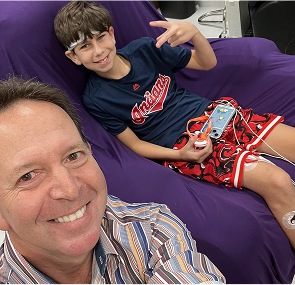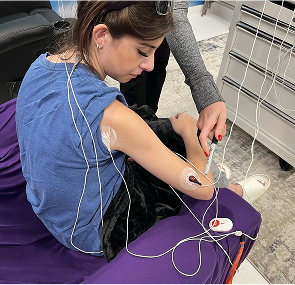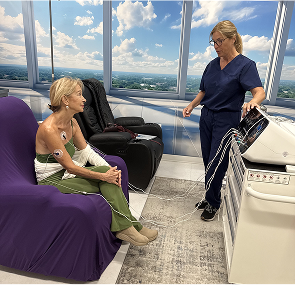The Role of Diet & Nutrition in Managing Peripheral Neuropathy

The peripheral nerve system is disturbed by peripheral neuropathy, which results in symptoms like burning pain, tingling, numbness, and muscle weakness, particularly in the hands and feet. While causes vary—ranging from diabetes and alcohol abuse to vitamin deficiencies—nutrition plays a direct role in both the development and progression of this condition.
A targeted diet can help repair nerve damage, reduce inflammation, and improve metabolic balance. Nutrients like vitamin B12, magnesium, and omega-3 fatty acids support nerve function, while poor dietary habits often lead to worsening symptoms or delayed healing.
This article explores how the right foods and supplements can ease nerve pain, reverse deficiencies, and enhance overall nerve health through strategic nutrition.
What Is Peripheral Neuropathy and Why Does Diet Matter?
Peripheral neuropathy makes it harder for nerves, muscles, and organs to communicate with one another. It causes numbness, tingling, burning, or sharp pain, usually in the hands and feet.
Diabetic neuropathy is the most prevalent form, but causes include:
- Chronic diseases (e.g., diabetes, kidney failure)
- Alcohol abuse
- Vitamin deficiencies
- Autoimmune disorders
- Infections (e.g., shingles, HIV)
Diet matters because nutrients influence nerve repair, inflammation, and mitochondrial function. A poor diet may worsen symptoms or hinder recovery by contributing to micronutrient deficiencies or glycemic spikes.
Next, we explore how specific nutrients influence nerve protection and regeneration.
How Does Diet Affect Nerve Health?
Nutrients regulate nerve function, inflammation levels, and the ability to regenerate damaged tissue.
Key Ways Diet Supports Nerve Function
- Myelin sheath repair relies on B vitamins and omega-3s
- Antioxidants like vitamin C, vitamin E, and polyphenols reduce oxidative stress
- Anti-inflammatory foods limit neuroinflammation
- Low-glycemic foods support stable glucose metabolism
This biological synergy shows why nutrient-rich diets accelerate healing.
Which Nutritional Deficiencies Worsen Neuropathy?
Vitamin and mineral deficiencies are a known catalyst for nerve damage.
Common Deficiencies That Cause or Exacerbate Neuropathy
- Vitamin B12
- Deficiency leads to nerve degeneration and anemia
- Vegan diets or malabsorption disorders (e.g., pernicious anemia) increase risk
- Thiamine (Vitamin B1)
- Deficiency damages glucose metabolism
- Common in alcohol abuse or high-carb diets
- Folate (Vitamin B9)
- Low levels affect DNA synthesis in nerve cells
- Low levels affect DNA synthesis in nerve cells
- Magnesium
- Essential for neurotransmission and nerve relaxation
- Essential for neurotransmission and nerve relaxation
- Vitamin D
- Low levels impair immune modulation and increase inflammation markers
- Low levels impair immune modulation and increase inflammation markers
Next: Which foods can counteract these deficiencies?
Best Foods to Eat on a Peripheral Neuropathy Diet
A neuropathy-friendly diet emphasizes nerve-regenerating, anti-inflammatory, and low-glycemic foods.
Key Foods That Promote Nerve Health
- Leafy greens (kale, spinach): Rich in magnesium, folate, and antioxidants
- Omega-3 EPA/DHA from fatty fish (sardines, salmon): Provides myelin repair
- Nuts and seeds (chia, walnuts): High in alpha-linolenic acid and vitamin E
- Berries (blueberries, raspberries): Packed with polyphenols to combat free radicals
- Whole grains (quinoa, buckwheat): High fiber for stable blood sugar
Functional Ingredients for Nerve Recovery
These foods help reduce nerve pain while improving metabolic and neurological function.
Which Foods Should Be Avoided in a Neuropathy Diet?
Certain foods may amplify inflammation, trigger blood sugar spikes, or worsen nerve degeneration.
Foods That Exacerbate Nerve Pain
- Refined carbohydrates (white bread, pastries): Cause rapid insulin spikes
- Added sugars: Promote glycation and damage nerve endings
- Trans fats: Increase the neurotoxic chemical acrolein
- Alcohol: Impairs vitamin B absorption and damages nerve membranes
- Artificial sweeteners (aspartame): May act as excitotoxins
The next section explains how diabetes influences dietary decisions for neuropathy.
Why Is a Neuropathy Diet Critical for Diabetics?
Diabetic neuropathy stems from chronically high blood sugar damaging nerves over time.
How Diabetes Causes Nerve Damage
- Hyperglycemia leads to glycation, altering protein structure in nerves
- Insulin resistance disrupts glucose metabolism in neurons
- Damaged blood arteries limit nerve cells' access to nutrients and oxygen.
Diet Strategies for Diabetic Neuropathy
- Prioritize low glycemic foods (lentils, berries, non-starchy vegetables)
- Focus on fiber-rich meals to slow digestion
- Add healthy fats and protein to help keep blood sugar levels stable after meals.
Next, we investigate which anti-inflammatory substances lessen nerve discomfort.
Which Anti-inflammatory Foods Help Peripheral Neuropathy?
Chronic inflammation accelerates nerve degeneration. An anti-inflammatory diet helps dampen cytokines and support nerve regeneration.
Best Anti-inflammatory Nutrients
- Curcumin: Blocks NF-kB and reduces IL-6 cytokines
- Gingerol: Inhibits prostaglandin production
- Omega-3s: Converts to resolvins, which promote tissue healing
- Flavonoids: Enhance capillary circulation in nerve beds
These anti-inflammatory foods work synergistically with nerve-protective diets.
Should You Take Supplements for Peripheral Neuropathy?
For a quicker recovery, supplements might offer therapeutic dosages or address dietary deficiencies.
Recommended Supplements for Nerve Repair
- Vitamin B12 (methylcobalamin): Essential for myelin integrity
- Magnesium glycinate: Helps regulate neurotransmission
- Alpha-lipoic acid: Improves nerve conduction velocity
- Vitamin D3: Enhances immune and nerve function
- CoQ10: Supports cellular energy in neurons
Up next: a sample 7-day meal plan tailored for nerve health.
Sample 7-Day Peripheral Neuropathy Diet Plan
Here is a weekly diet plan that supports the nerves and is designed to balance blood sugar and reduce inflammation.
Next, we cover how lifestyle habits amplify dietary benefits.
How Lifestyle Changes Improve Dietary Outcomes
Lifestyle plays a co-therapeutic role in managing peripheral neuropathy.
Practices That Enhance Dietary Effects
- Exercise improves circulation and nerve oxygenation
- Sleep hygiene supports nerve regeneration
- Stress reduction lowers cortisol, which contributes to inflammation
- Smoking cessation prevents vascular constriction
Now we’ll answer common reader questions about diet and neuropathy.
FAQs About the Peripheral Neuropathy Diet

Can diet reverse neuropathy?
It can slow progression, reduce pain, and sometimes restore function, especially when deficiency-related.
Is keto good for neuropathy?
Some benefit from keto due to glycemic stability, but others may experience nutrient gaps. Supervision is essential.
Is gluten harmful to nerve health?
In gluten-sensitive individuals, gluten may trigger inflammation and worsen symptoms.
Can vegetarians follow a neuropathy diet?
Yes, but they must supplement or monitor B12, iron, and omega-3 intake.
Which foods immediately reduce nerve pain?
Omega-3-rich fish, turmeric, and magnesium-containing foods may offer fast relief through anti-inflammatory effects.
In the final section, we explore scientific validation of dietary interventions.
What Does Research Say About Neuropathy and Diet?

Emerging studies support diet as a non-pharmacological tool for neuropathy.
Evidence From Clinical Trials
- A 2021 meta-analysis in Nutrients showed ALA supplementation reduced pain scores by 53% (n=716)
- Vitamin B12 trials showed improved nerve conduction and symptom relief in 68% of participants (Journal of Neurology, 2020)
- A low-glycemic diet study in diabetics with neuropathy showed significant symptom reduction over 12 weeks
Experiencing Chronic Pain in South Florida?

Discover how Scrambler Therapy can help relieve CRPS and neuropathy—drug-free and non-invasive.
We Offer:
🔹FDA-Cleared Scrambler Therapy—Safe, effective relief for nerve pain and complex regional pain syndrome with clinical studies showing an 80–90% reduction in chronic nerve pain by Johns Hopkins Medicine. You can also read the study on Scrambler Therapy’s effectiveness in Pain Physician Journal.
🔹Personalized Pain Protocols—Tailored sessions guided by experienced clinicians in South Florida.
🔹Compassionate Care Team—Dedicated to helping you reduce pain and improve daily function.
🔹 Professional Specialists—Led by Dr. Rick Markson, Dr. Alexus Tennant, and Dr. Richard Drucker.
Recommended Reads:
📘 What is scrambler therapy?
📘 What to Expect During a Scrambler Session
📘 CRPS Pain Relief Without Drugs—Real Patient Stories
📘 Conditions that scrambler therapy can treat
Get to Know Us:
📍 We serve Palm Beach, Fort Lauderdale, and Miami from our location at 100 NW 100th Ave, Plantation.
💬 Over 1,000+ successful sessions completed.
🏥 Trusted by pain specialists across South Florida
Ready to Reclaim a Pain-Free Life?
Contact South Florida Scrambler Therapy today or call us at +1 954-476-6661.
Start your healing journey now—no prescriptions, no surgery.
👉For advice, recovery success stories, and behind-the-scenes care, follow us:
📸Instagram—Day-in-the-life stories from our patients
👍Facebook—Success journeys and community support
Patient Reviews
Start Your Nerve Pain-Free Journey Today







